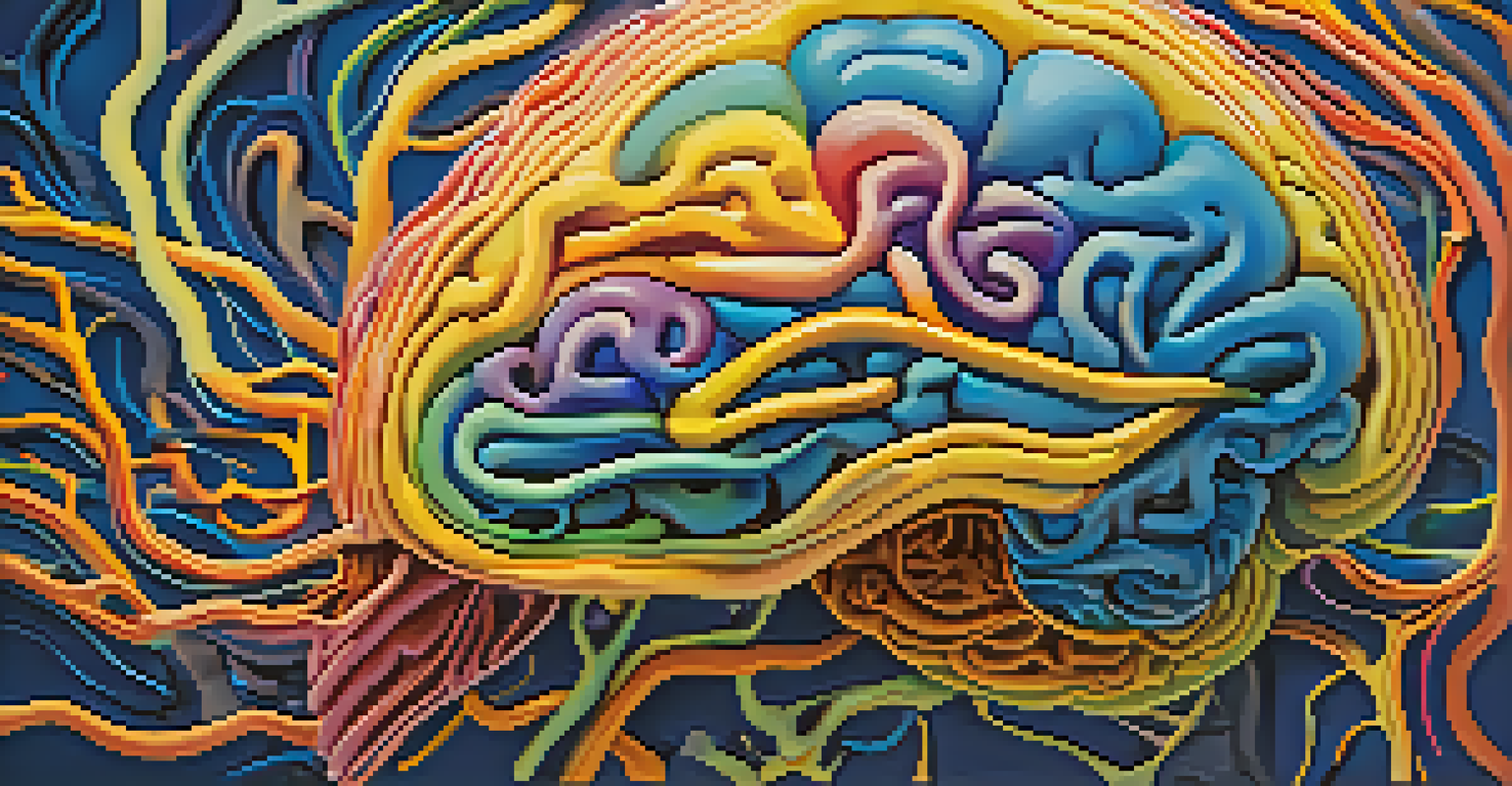Psychedelics and PTSD: A New Hope for Treatment

Understanding PTSD: A Hidden Battle
Post-Traumatic Stress Disorder (PTSD) can feel like an invisible weight, affecting millions who have faced trauma. It manifests in various ways, from flashbacks and anxiety to emotional numbness. For many, traditional treatments like therapy and medication don’t provide the relief they seek, leaving them feeling trapped in their own minds.
The greatest discovery of my generation is that a human being can alter his life by altering his attitude.
Imagine carrying an anchor that drags you down no matter how hard you swim towards the surface. That’s how living with PTSD can feel. It’s not just the traumatic event that lingers; it’s the persistent emotional turmoil that can disrupt daily life.
As more people seek alternative therapies, the conversation around innovative treatments for PTSD is gaining momentum. One of the most intriguing developments in this area is the use of psychedelics, substances that have shown potential in changing the way we process trauma.
What Are Psychedelics? A Brief Overview
Psychedelics are a class of substances that alter perception, mood, and cognitive function. Common examples include psilocybin (found in magic mushrooms), LSD, and MDMA. These compounds work primarily by affecting serotonin receptors in the brain, which can lead to profound shifts in consciousness.

Think of psychedelics as a key that can unlock hidden doors in the mind, providing access to emotions and memories that are often locked away. This can create a mental space where individuals feel more open and capable of confronting painful experiences.
Psychedelics Aid PTSD Recovery
Emerging research suggests that psychedelics can help individuals with PTSD reframe traumatic memories and alleviate symptoms.
While psychedelics have historically been associated with counterculture movements, recent research is uncovering their therapeutic potential. Clinical studies are increasingly focusing on how these substances can support mental health, particularly for those struggling with PTSD.
The Science Behind Psychedelics and PTSD
Research indicates that psychedelics can promote neuroplasticity, the brain’s ability to reorganize itself by forming new neural connections. This can be particularly beneficial for PTSD patients, as it may help them reframe traumatic memories. Studies have shown that, when administered in controlled settings, psychedelics can reduce symptoms of anxiety and depression.
Healing takes time, and asking for help is a courageous step.
In essence, psychedelics may help patients rewrite their emotional narratives, allowing them to process trauma in a new light. Imagine being able to revisit a painful memory and, instead of feeling fear, you feel a sense of understanding and acceptance.
Additionally, some clinical trials have reported significant improvements in PTSD symptoms after just a few sessions. This promising data opens the door to a new era of treatment options that could transform lives.
Psychedelic-Assisted Therapy: A New Approach
Psychedelic-assisted therapy combines the use of psychedelics with traditional psychotherapeutic techniques. In this approach, a trained therapist guides patients through their experiences, providing support as they navigate challenging emotions. This combination can foster deeper self-exploration and healing.
Imagine having a trusted companion by your side as you journey through your emotional landscape; that’s what this therapy offers. The therapist’s presence can help patients feel safe as they confront difficult memories and feelings during their psychedelic experience.
Therapy Enhances Psychedelic Effects
Psychedelic-assisted therapy combines the use of psychedelics with professional guidance, fostering deeper emotional healing and self-exploration.
This therapeutic model has shown promise in clinical trials, where participants report not only reduced PTSD symptoms but also a greater sense of connection to themselves and others. It’s a holistic approach that recognizes the power of both mind and body in the healing process.
Real-Life Success Stories: Hope in Action
Many individuals have shared transformative experiences after participating in psychedelic-assisted therapy. One veteran recounted how, during a guided session, he was able to confront combat-related memories that had haunted him for years. This breakthrough allowed him to reclaim parts of his life that he thought were lost forever.
These personal stories highlight the potential of psychedelics to facilitate deep emotional healing. Just like a caterpillar emerging from its cocoon, many individuals report feeling reborn after their experiences, equipped with new perspectives on their trauma.
As more people share their journeys, it becomes clear that these treatments can offer hope where traditional methods have fallen short. These narratives serve as powerful testimony to the growing recognition of psychedelics in mental health treatment.
Challenges and Considerations in Psychedelic Therapy
Despite the promising results, it’s essential to approach psychedelic therapy with caution. Not all individuals with PTSD may respond positively to psychedelics, and there are risks involved, especially for those with a history of certain mental health conditions. Therefore, thorough screening and professional guidance are critical.
Think of it like trying a new recipe; not every ingredient will work for every dish. The same applies to therapy—what heals one person may not be suitable for another. This highlights the importance of personalized treatment plans that consider an individual’s unique history and needs.
Caution Required in Treatment
While promising, psychedelic therapy must be approached cautiously, as individual responses can vary and thorough screening is essential.
Moreover, the legal status of psychedelics can be a barrier to access. As research continues to grow, advocacy for policy changes is crucial to ensure that these therapies can be available to those who need them most.
The Future of Psychedelics in Mental Health Treatment
The growing body of research and anecdotal evidence suggests that psychedelics could play a significant role in the future of mental health treatment, particularly for PTSD. As clinical trials expand and more data emerges, we may see a shift in public perception and policy regarding these substances.
Imagine a world where mental health treatments are as varied and accessible as physical health treatments; this could be within reach if the potential of psychedelics is fully realized. The evolving landscape of mental health care could incorporate psychedelics as a mainstream option, alongside traditional therapies.

With continued research and advocacy, psychedelics may offer a new hope for countless individuals seeking relief from the burden of PTSD, paving the way for a brighter, more healing-focused future.